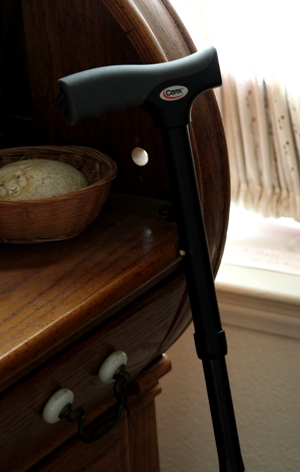
People don’t see you; they see
your cane,
your chair,
your walker.
They see your tremor and your white hair, and
the you you used to be and
the you you are
are supplanted by images and stereotypes and judgments.
You were young once.
You had dreams once. You have dreams now.
And momentary kindnesses feel patronizing, just putting a round peg in a round hole
because
they think they know all there is to know about you.
This weakness snuck up with little warning, and there you were full speed ahead—and your life blended in with all the other capable doers, even though you were ever trying to stand out—
be different.
And now you are.
But you don’t want to be this different—so different as to not be seen
or listened to
or valued.
Because people don’t see you; they see
your cane,
your chair,
your walker.
And they judge you as you pull into the handicap spot; but
when you peel yourself out and start to hobble, there’s the momentary tut-tut of support before you become invisible once again, and all that is left is
the cane.
——————
I have been hobbling around lately because of a knee injury, and it got me thinking as I relied so heavily on a cane (resisted the walker). Often when we view those with health aids, we see the disability as the person. Somehow it is hard to look past the device. The personhood of the individual becomes invisible to the predominance of the device. The handicapped become a category; and unless you push in and get close, it is easy for their personalities to disappear in the disability.
I felt this somewhat a few years back when I used a motorized cart in a store when I was first getting out again after breaking a rib. It was an odd experience to feel some people were looking down on you literally and in other ways, too–judging your need, assessing your worth, pitying you. And in those moments, I felt a lesser version of me to these strangers than I would have before.
When we meet people out and about, when they roll or hobble in to our churches and our places of employment, do we go out of our way not just to perhaps help or make a broad path; but do we see them as people worthy of getting to know–people with personalities and worth who stand apart from their weakness?
I am going to try harder.

Worthy sentiments, Lilly. I know from experience (with my dear Randy) that sometimes people judge and don’t see beyond a person’s disability, whether temporary or permanent. Thanks for reminding us all to look beyond the things that make a person “different.”
LikeLiked by 1 person
It applies also to those who have quirks and don’t seem like us. Everyone has a story and needs to be seen as real and valuable person. It is at times uncomfortable, but we need to retrain ourselves to see with new eyes because we could be walking in shoes just like that all too soon. The challenge: To see as Jesus sees.
LikeLike
Reblogged this on Concierge Librarian.
LikeLiked by 1 person
Thank you! 🙂
LikeLiked by 1 person
I have also recently had a knee injury, and am currently on crutches as a result of it – so I completely relate to this, and I’ve been writing about the struggles of only being seen as the ‘girl with crutches’ on my blog (lifeonsticks.wordpress.com). It’s so important to look beyond a person’s disability and to treat people as equals.
LikeLiked by 1 person
Absolutely!
LikeLike